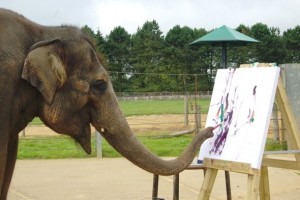Head over to Athens, Georgia, take a wander to the corner of South Finley and Dearing Streets, and you will find a rather magnificent white oak tree. If you have a look around you’ll find a plaque that gives some details of the following story: in the 1820s Colonel William Henry Jackson, wishing to protect a tree which held special childhood memories for him, officially deeded the tree and the land around it to none other than the tree itself! This quaint tale is not a particularly plausible one if looked at closely. To begin with, the source seems to be a newspaper article published 70 years after the events were supposed to have taken place. But on top of this, it is quite clearly illegal to deed anything to a non-conscious entity, as that thing will have no ability to carry out the responsibilities of ‘owning’ anything. Nonetheless, the ‘Tree That Owns Itself’ quickly became part of the local folklore in the area, so much so that the local authorities have accepted that this tree does indeed own itself. However little weight the title holds legally, the public have recognised it. Could this, then, be the first example of a non-human being given a human right, namely the right of ownership?

When I saw this story, it immediately brought to mind the recent developments in rights for ‘non-human person’. Most notably India declared in 2013 that dolphins ought to have their own specific rights (they were not, as was widely reported, granted legal status conferring ‘non-human personhood’). Various other animals have been suggested as having the characteristics of a ‘non-human person’, namely the great apes, cetaceans, elephants and parrots. These, it is argued, all have cognitive abilities which are consistent with being considered a ‘person’. Things like self-awareness, creativity, intentionality and symbolic communication. The current court case in the state of New York revolving around the issue of illegal detention of two chimpanzees forces some of these issues into the light. The proponents argue that chimps are intelligent, feel emotion, have creativity and should therefore have the right to freedom and liberty. The outcome of this case could have huge ramifications in areas such as animal testing, where chimpanzees are used regularly.

Lovers of wildlife surely see these developments as positive steps, and I don’t deny that they may help to prevent animal cruelty, but I wonder whether they will have any effect on a related, but different issue, of biodiversity conservation. In the cases above, it is argued that some creatures deserve rights because of their similarity to humans. This sticks with me somewhat, because it immediately means that some animals will be favoured over others, and it continues the idea of human supremacy. Arbitrary traits in living things like ‘intelligence’ or ‘creativity’ really have no bearing on whether something should be protected or not outside of our own created fiction of humans being the pinnacle of creation. And targeting individual species will do nothing to curb our disrespect for the rest of nature. We need to take a holistic approach both to conservation, animal rights, and our environment in order to fully realise the potential we have to co-exist with the amazing creatures we share our world with. Judging creatures by their similarity to humans also opens up the possibility that animals will be refused rights based on their dissimilarity to humans. Chimps, our closest living relatives, are widely reported to share 99% of our DNA, but as this video from MinuteEarth shows, that’s not really the case.
In addition, giving rights to animals is really a pointless endeavour as the whole concept of ‘rights’ is really a human construct. There is no physical thing which has any bearing on reality (or any relevance to these creatures), only our own imagined fiction of ‘rights’, an abstract idea, unique to humans. But we can’t even decide what human rights are, let alone extend any of these things to animals. The UN’s Universal Declaration of Human Rights is supposed to present basic human rights, which are ‘universal’ and ‘inalienable’. In other words they apply to everyone the world over, and that everyone is entitled to them simply by being a human. Although no one can question the moral intent with which these Rights were drawn up, some have noted that they are rather western-centric. The focus on individual rights over the rights of family or community ignores the importance of these units in many Asian cultures, and having things like a Right to nationality and a Right to own property ignore those traditional cultures to which nationhood and ownership seem alien. So even if we were to offer animals ‘non-human person rights’ (and I would highly recommend thinking of a better name for them), who would decide what those rights would be, and what implications would they have?

These questions, and others besides, have no easy answers. As with any legal process, progress is likely to be slow, contests, and potentially contradictory or ineffective. So what are the alternatives? Well, the concept of rights is uniquely human, and therefore we should perhaps approach this from a human perspective. We are part of the environment, and although we might like to deny it, we also rely on ecosystems to survive. Therefore any action which harms ecosystems is also an action which harms ourselves. A Dutch court recently ordered the government to cut CO2 emissions in order to protect its citizens from climate change. In a similar vein, I would argue that governments have a legal responsibility to protect ecosystems and preserve biodiversity in order to ensure the wellbeing of their citizens, both physically and emotionally. This is the crux of so-called ‘ecosystem services’ which are usually cited in terms of financial value so that the environment can be brought into the spheres of economics and capitalism, and valued correctly. I personally don’t like this (that’s for another time though), but I believe that the same principle applied to a legal context as opposed to an economic one, could bring about meaningful change in terms of environmental protection.
Secondly, you don’t need to make something a ‘person’ in order for it to be considered a legal entity. Look, for example, at corporations. A representation of our fixation with making money, corporations are considered legal persons, and therefore have legal rights and obligations. In the same way, rather than conferring human rights on animals based on their similarity to humans, it is surely far better to make the environment as a whole a legal person, therefore meaning it has to be considered within the context of human legal systems. The implications of this are far reaching, and there will no doubt be conflicts of interest between what’s best for human wellbeing and for the wellbeing of our environment. But perhaps this step would achieve what Professor Marzluff propounds in this article: merely giving all animals the same and equal right, to exist.
